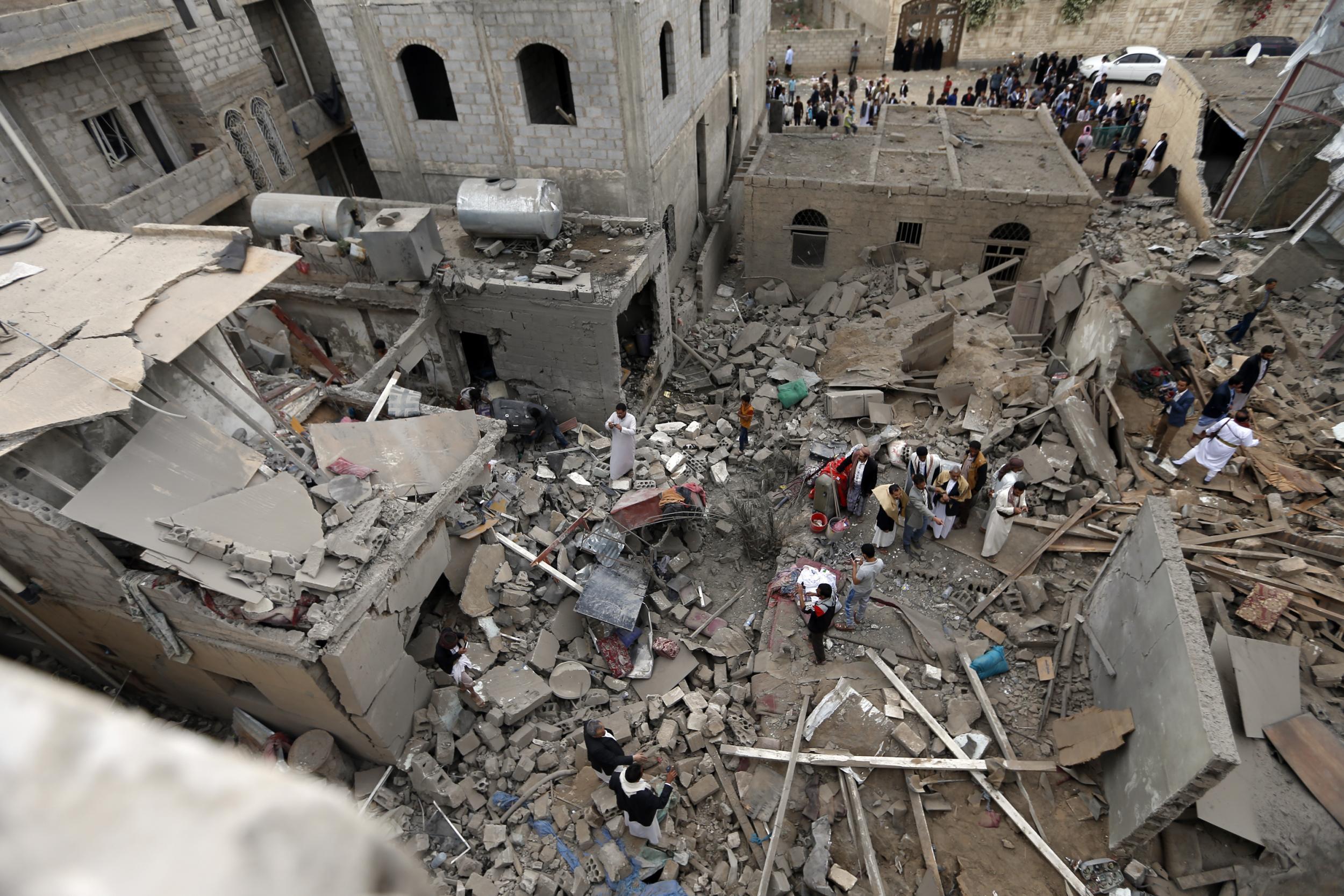UK Government approved Saudi arms deals worth £238m six months after deadly Yemen funeral air strike
The trade secretary was initially reluctant to continue licensing arms deals with the country

Your support helps us to tell the story
This election is still a dead heat, according to most polls. In a fight with such wafer-thin margins, we need reporters on the ground talking to the people Trump and Harris are courting. Your support allows us to keep sending journalists to the story.
The Independent is trusted by 27 million Americans from across the entire political spectrum every month. Unlike many other quality news outlets, we choose not to lock you out of our reporting and analysis with paywalls. But quality journalism must still be paid for.
Help us keep bring these critical stories to light. Your support makes all the difference.
The British government licensed £283m worth of arms sales to Saudi Arabia in the six months after an air strike by the Riyadh-led coalition killed 140 mourners at a funeral in Yemen.
A UN sanctions monitor told the security council that last year's double air strike, which targeted both mourners and those who helped them in Sana’a, the Yemeni capital, violated international law.
It was one of the bloodiest attacks in a two year campaign waged by Saudi Arabia against Houthi rebels in Yemen.
Following the attack, Foreign Secretary Boris Johnson advised Trade Secretary Liam Fox to grant four export licence applications to supply the Royal Saudi Air Force with equipment which could be used in Yemen, according to The Guardian.
Figures compiled by the Campaign Against Arms Trade show that from the time of the attack on 8 October until the end of March 2017, the UK government authorised exports including £263m worth of combat aircraft components and £4m of bombs and missiles to the country.
The figures exclude aircraft cannon equipment, targeting software, aircraft components and assault rifles exported under 24 open licences, which are seen as even less transparent.
Emily Thornberry MP, Labour’s Shadow Foreign Secretary, said: "Labour has committed to suspend arms sales to Saudi Arabia for use in this conflict, until an independent, UN-led investigation has been carried out into whether these arms have been used in violation of International Humanitarian Law.
"The Government has a legal and moral obligation to ensure they are not complicit in war crimes.
"Instead, they are simply burying their heads in the sand while the people of Yemen continue to suffer."
UK and EU export rules dictate that licences should not be approved if there is a clear risk they could be used to seriously violate international humanitarian law.
The UK government was exonerated of breaching weapon exports law by continuing to approve sales of weapons to Saudi Arabia in a legal case brought by the Campaign Against Arms Trade at the High Court earlier this month.
“The sales were not just a moral issue but are also a clear breach of the UK’s arms export criteria,” Andrew Smith, a spokesperson for CAAT told The Independent.
“The funeral bombing should have been a time when the UK government stopped and reflected on its dangerous policy of arming Saudi Arabia. Instead, we followed it up with almost £300m of fighter jet and bomb licences.
“We don’t know how they’re going to be used, who they’ll be used against and how long it will be before they are used in the next atrocity.
“For decades the UK has put arms sales ahead of the rights of Saudi Arabian people and now they are putting them ahead of the rights of Yemeni people."
Theresa May’s visit to Saudi Arabia in April showed that “the UK is standing by what is one of the most brutal vile repressive dictatorships in the world while it bombs the poorest country in the region,” according to Mr Smith.
The CAAT’s ongoing legal appeal against the government meant he could not comment on the culpability of specific ministers, but said “Theresa May and her colleagues in the cabinet could stop this anytime they want.”
Statistics compiled by the organisation also reveal the UK exported £86m worth of weapons to Turkey between an attempted coup in July 2016 and end of March 2017, almost double the value of arms authorised over the same period in the previous year.
Subscribe to Independent Premium to bookmark this article
Want to bookmark your favourite articles and stories to read or reference later? Start your Independent Premium subscription today.
Join our commenting forum
Join thought-provoking conversations, follow other Independent readers and see their replies
Comments